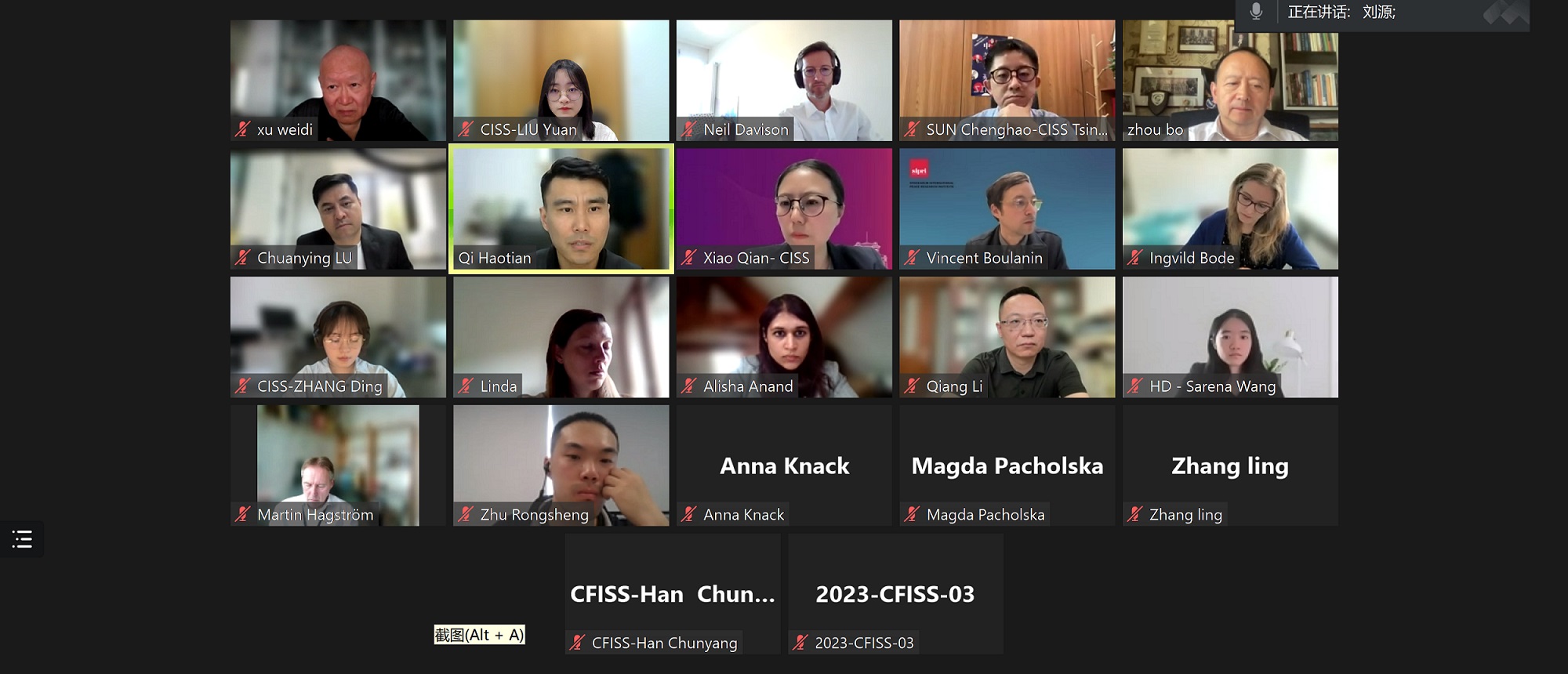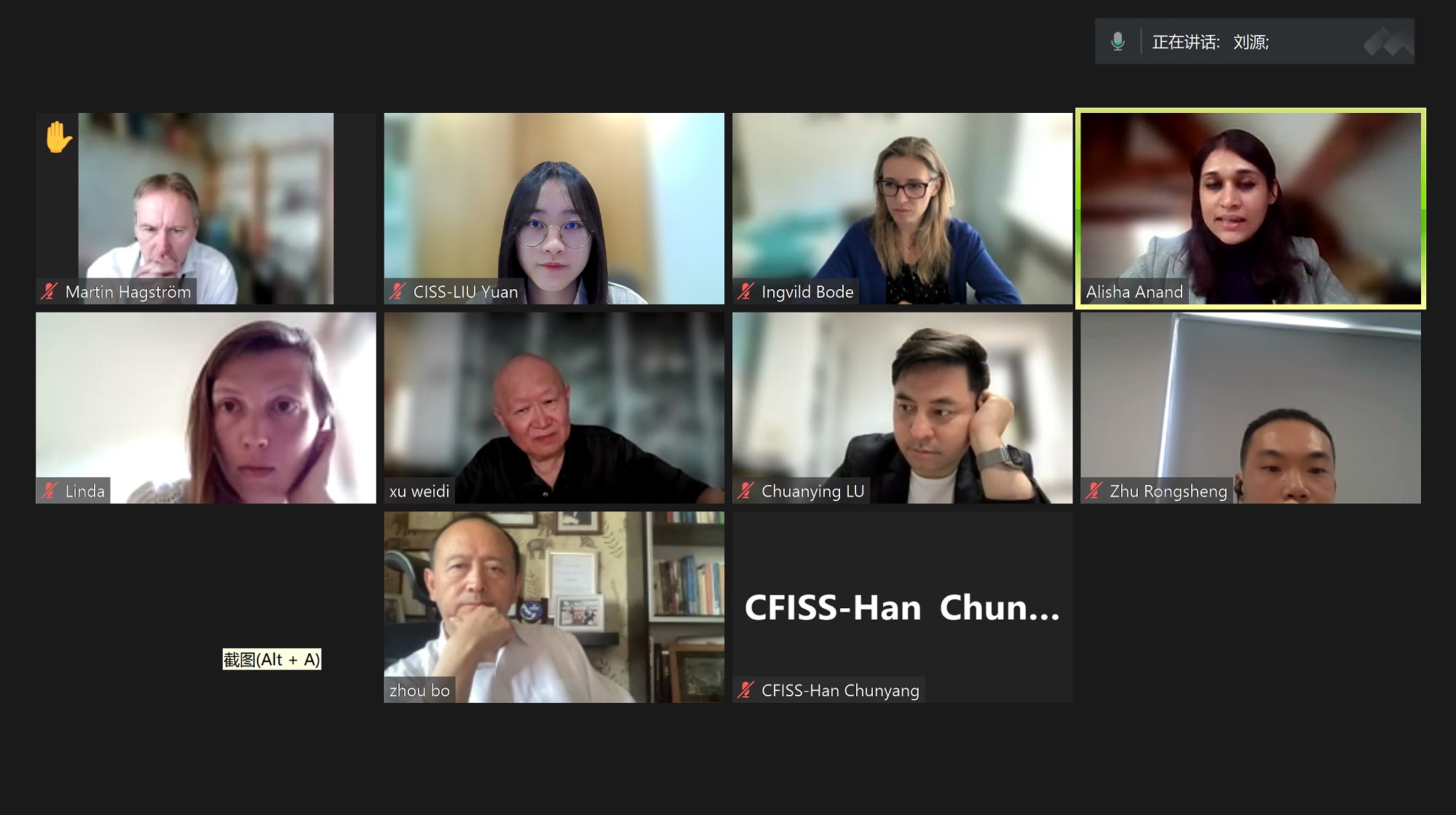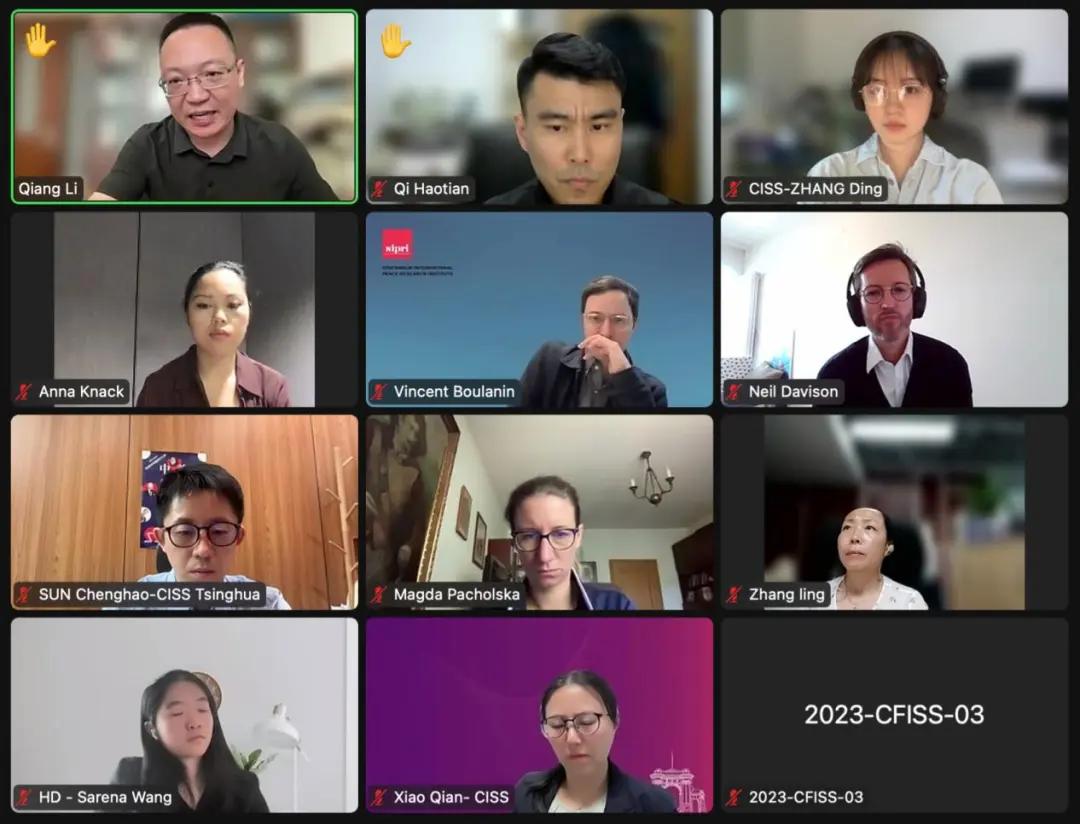On the afternoon of May 13, the Center for International Security and Strategy (CISS) of Tsinghua University and the Centre for Humanitarian Dialogue (HD) held the second round of the China-EU Dialogue on Artificial Intelligence and International Security. The Dialogue was co-moderated by Xiao Qian, Deputy Director of CISS and Vice Dean of the Institute for AI International Governance at Tsinghua University, and Neil Davison, Senior Advisor of the AI and Emerging Technology Digital Conflict Team at HD. The event brought together experts from various universities and research institutes, including Tsinghua University, Peking University, China University of Political Science and Law, China People’s Liberation Army National Defense University, Shanghai Institutes for International Studies, Leiden University, Stockholm International Peace Research Institute, University of Amsterdam, and Swedish Defense Research Agency, to discuss and exchange views on scenarios in which artificial intelligence (AI) is applied to decision support leading to unexpected escalation.
The Dialogue was divided into two main sessions. The first session focused on the potential risks of AI applications. Experts from both sides discussed the application of AI in the military command decision-making process, the role of AI-based decision support systems, and factors that may lead to unexpected escalation.

Online Group Photo of the Participants
The second session unfolded in the form of group discussions, centering around the application of AI in land-based and sea-based scenarios. Based on the construction of peacetime scenarios, experts analyzed factors that may lead to unexpected escalation of conflict due to the application of AI in the military field and explored confidence-building measures to reduce the risk and facilitate communication.

Discussion on Sea-Based Scenarios

Discussion on Land-Based Scenarios
